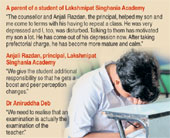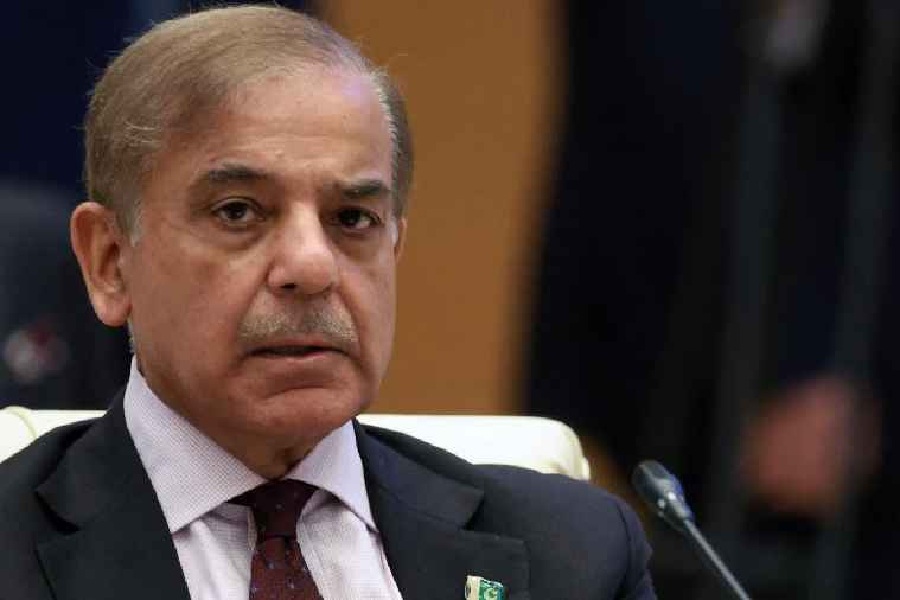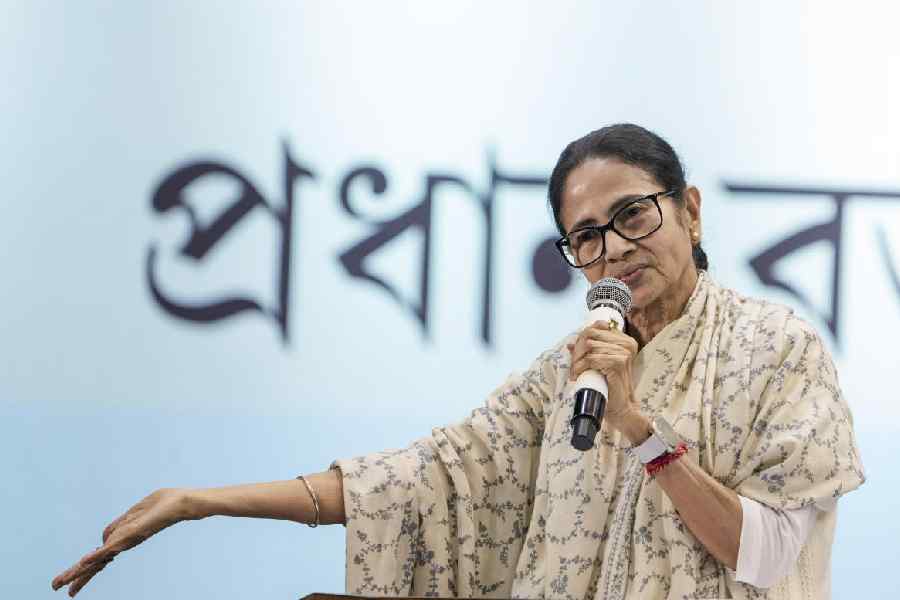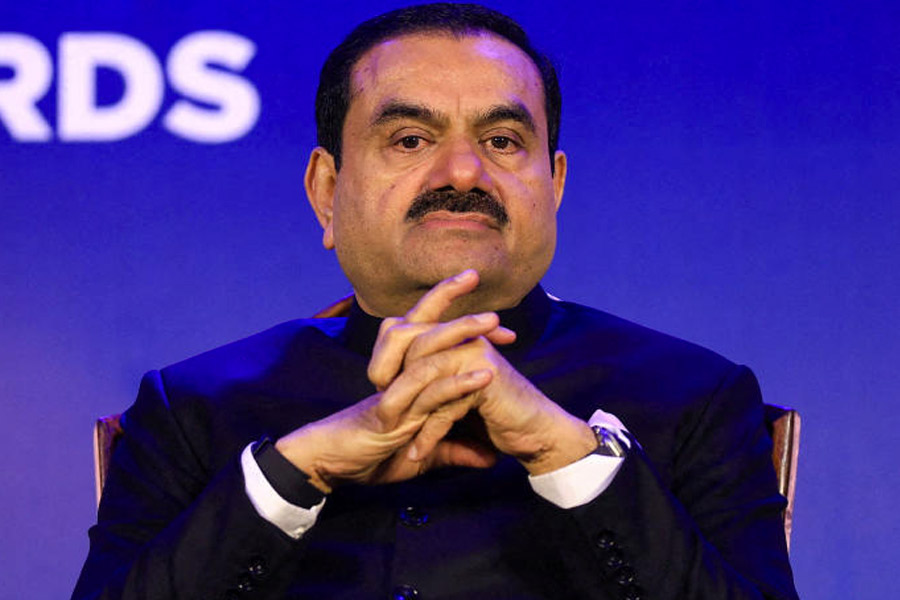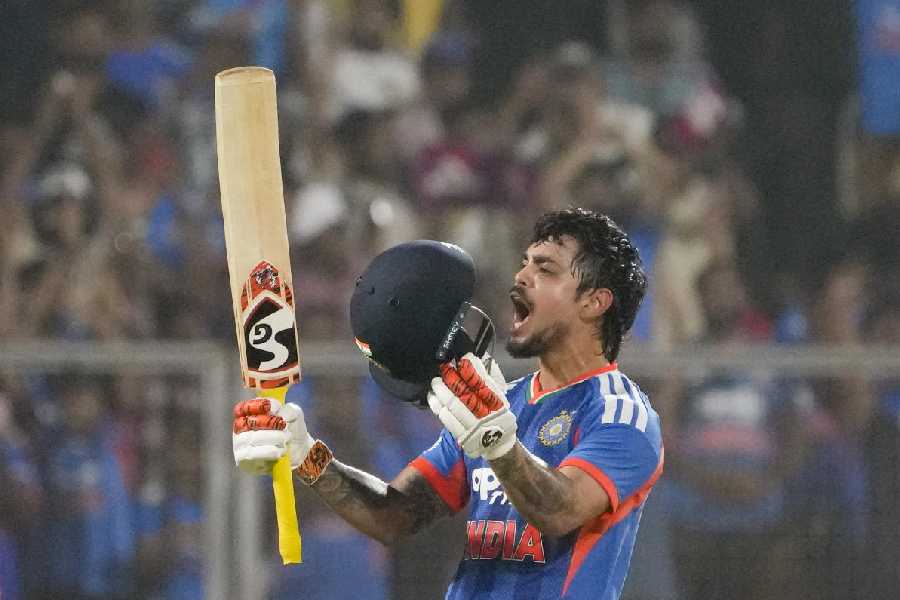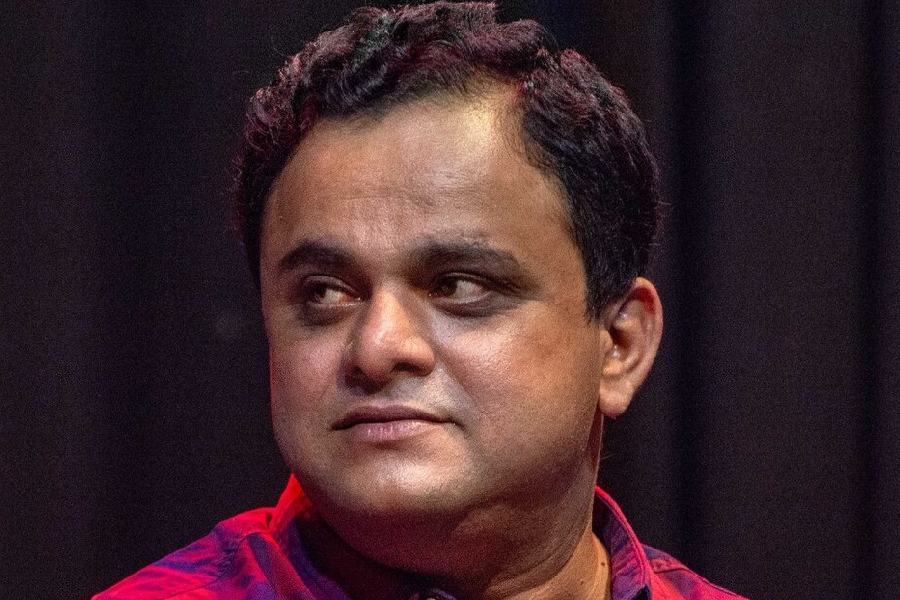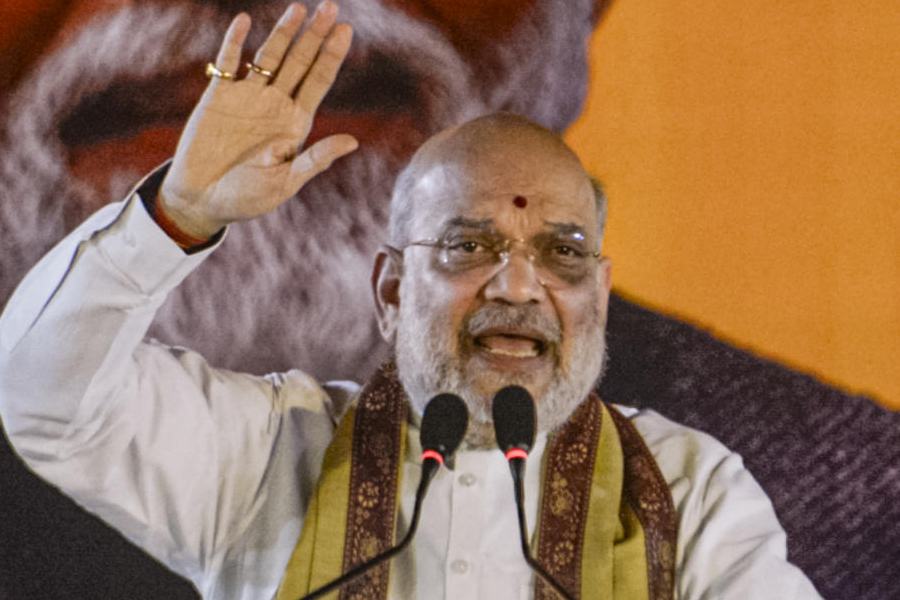 |
Children are often blamed for poor academic performance and failure, leading to further demoralisation and often, suicide.
Some city schools have begun taking steps to help children accept failure and find out what they can learn from it, instead.
MP Birla Foundation Higher Secondary School, Lakshmipat Singhania Academy, Modern High School, Heritage School and Mahadevi Birla Girls Schools are a case in point.
Herbert George, principal, MP Birla Foundation Higher Secondary School, says: ?The number of suicidal deaths per examination is high. I am starting a system of appointing a teacher-mentor from this session.?
The teacher-mentor will guide failed students the entire year and will also interface between parents and other teachers.
?The mentor will visit the house of a failed student and see if the environment there is impairing the child?s learning process,? says George.
?Moreover, at the additional tutorials, I will make it a point to appoint a teacher other than the one the child had previously studied under, for it may be that he was not happy with that particular teacher,? he adds.
The school has also started counselling for parents who, in most cases, find it much more difficult than their wards to accept failure.
Lakshmipat Singhania, Mahadevi Birla and Heritage School, too, have counsellors for this purpose.
Apart from the tutorials for failed students, Lakshmipat Singhania and Heritage schools hold special classes around the year for weak students as well.
?We inform parents and hold these sessions for those who require it. Doubts that have not been cleared in regular classes are dealt with in these sessions,? explains Anjali Razdan, principal, Lakshmipat Singhania.
Schools are making an effort to repair the emotional setback of failed students through talks and various activities.
?Though there is no single formula, teamwork, with constructive discussions on each other?s output, is a good method of letting a child make a realistic self-assessment. It?s necessary that a child realises that he can?t be the best at everything,? says Devi Kar, principal, Modern High School.
Schools also hold talks with children to make them realise that failure is nothing to be ashamed about. ?In fact,? adds Kar, ?it?s important to let the child fail and make mistakes.?
According to psychiatrist Rima Mukherji: ?It?s important to see that a child who fails does not lose faith in his ability and remains aware of his other talents.?
The examination system, she says, should be such that every mark symbolises how far a child has come, instead of how much he has fallen short by.
At Heritage, for instance, every effort of a child is recognised through ?incentive cards?, which are handed out to children for whatever progress they make.
However, even as these measures are taken, psychiatrist Debashish Chatterjee warns: ?We need to be careful that children don?t start taking it for granted that faring well in an examination is not important. One has to tread the thin line of putting the right kind of importance on performance.?

